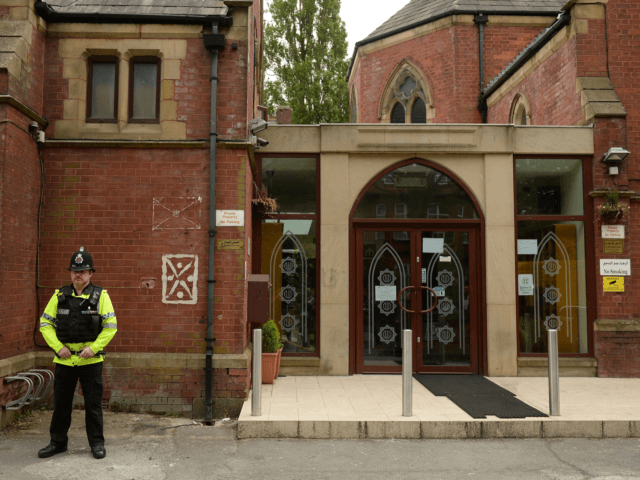The Manchester mosque attended by Salman Abedi, the suicide bomber who killed 22 mostly children and young people dead and maimed scores more at an Ariana Grande concert in 2017, has been accused of burying its “head in the sand” regarding radical Islamic extremism.
The inquiry into the Manchester Arena bombing heard from the lawyer representing the families of the victims of the terror attack that the Didsbury Mosque had “prefered to turn a blind eye” to Islamist rhetoric from its members and even from one of its own imams in the lead up to the attack.
Salman Abedi, who died in the blast, as well as his brother Hashem — who has been imprisoned for conspiring in the terror attack — attended the mosque in the suburban area of Manchester, the Manchester Evening News reported.
The duo’s older brother, Ismail Abedi, also volunteered at the Arabic language school, and their mother and father both performed roles at the Didsbury Mosque.
John Cooper QC, the attorney who has represented the largest group of victims’ families, criticised the mosque for failing to publish an “explicit condemnation of violence on its website” to this day, some five years after the terror attack.
“Whilst we do not suggest that the mosque supports violence, the unavoidable conclusion is that it is unwilling to issue a clear condemnation for fear of offending at least some of its congregation, and in this respect, the mosque is guilty of a dereliction of duty,” he said.
“Didsbury Mosque buried its head in the sand and was in dereliction of its duty to its congregation and the wider community. These failings continue to this day,” Cooper added.
One of the imams at the mosque, Mustafa Graf, who was pictured in military gear in Libya at a time when radical Islamist fighters were rife in the country, was accused of spreading extremist rhetoric during a 2016 sermon. In an address to the worshippers, Graf was said to have referenced “jihad”.
Graf allegedly said that “jihad for the sake of Allah is the source of pride and dignity for this nation,” during Friday prayers. The inquiry was told that it was clear from the context of the speech that he was not using the word to refer to peaceful holy struggle rather than holy war.
The chairman of trustees at Didsbury Mosque, Fawzi Haffar, said that he acknowledged that the sermon could have been seen as calling for violent jihad, but said that no attempts were made to clarify the meaning of the speech as “raising that matter again would maybe inflame the situation.”
Mr Haffar went on to claim that Didsbury Mosque was home to Salafism ideology, an ultra-orthodox version of Islam that has been tied to Sunni terrorist organisations such as Islamic State and al-Qaeda.
“Didsbury Mosque is diverse, pluralistic and representative of Muslims in the UK. Our congregation is made up of various ethnicities and different schools of thought. It has been our long-established policy to accommodate all of these schools of thought without differentiating between them, not preferring one over the other,” he said.
“We follow basic Islamic teachings which are common to all Sunni schools of thought… We are a middle of the road mosque,” Haffar claimed.
However, appearing to contradict these claims is a statement provided to Manchester Evening News from mosque spokesman Abdullah Yusuf, who said shortly after the attack that there is “nothing wrong” with having Salafist beliefs, claiming that it is just another “school of thought” of Islam comparable to being a Protestant Christian.
“Didsbury Mosque welcomes Salafis — but people are not welcome if they are a terrorist, a murderer or a criminal,” the spokesman said at the time.
The inquiry has previously revealed that other institutions, such as Britain’s domestic intelligence agency, MI5, failed to act prior to the bombing, despite being warned about the would-be terrorist on numerous occasions.
The local Manchester police force has also come under criticism for failing to station any officers at the arena as the would-be bomber entered the concert, with one officer taking a two-hour unauthorised break at the time.
Security guards at the venue also failed to intercept Abedi over concerns about being labelled “racist” despite having a “bad feeling” about the terrorist and people complaining about him.
Follow Kurt Zindulka on Twitter here @KurtZindulka

COMMENTS
Please let us know if you're having issues with commenting.